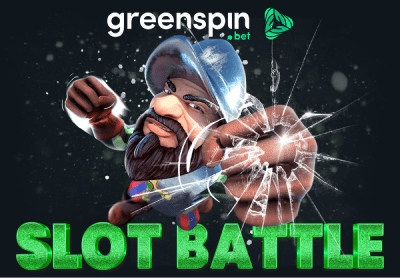Rei do Pitaco launched its DFS offering in 2019 with one eye already on the soon-to-be regulated sports betting market in Brazil, which finally launched on 1 January.
It first signed an online sportsbook partnership with Kambi in 2022, a deal it extended last October as it prepared to transition from a DFS operator to a full-fledged sports betting site.
It’s a strategy that’s been hugely successful in the US for the two market leaders, FanDuel and DraftKings. Both evolved from DFS-focused operations to sports betting and igaming to the tune of a combined $10.6 billion (£8.2 billion/€9.6 billion) in FY2024 revenue.
The pair have impressively utilised the huge customer base they gained from their DFS days and transitioned them into sports betting with the companies.
But Augusto says while Rei do Pitaco has followed much of the DraftKings and FanDuel playbook, it’s not a case of simply “copy and pasting” the DFS-to-sports betting model in Brazil.
“We looked a lot at FanDuel and DraftKings,” Augusto tells iGB. “Other companies tried to build what FanDuel and DraftKings did in Brazil, but they failed.
“So we understood the behaviour of the fantasy fans, and we decided to build a product from scratch and based on Brazilians.”
Augusto warns the advantage isn’t quite as large for Rei do Pitaco as it was FanDuel and DraftKings, with the two US companies having transitioned to a newly legal market after PASPA restrictions were struck down in 2018. Brazil had a grey market between 2018 and its 1 January launch.
“The advantage for DraftKings and FanDuel in the US was huge,” Augusto continues. “For us, not that much. But still, we acquired a lot of customers, a huge user base that gives us a really great advantage in the regulated market.”
Product and localisation the key
The differentiator of localisation is one that Rei do Pitaco is leaning into, fitting into its data-driven approach led from the front by Augusto.
Augusto’s “product, product, product” strategy is one he hopes will end in Rei do Pitaco being seen as a second screen for bettors watching sports in Brazil, helping the company to achieve its targets.
“If we really are the best product in the market, I think market share is just a matter of time,” Augusto explains. “And that’s where we focus.”
Rei do Pitaco’s DFS origins means it already has a steer on Brazilian sports bettors’ preferences, and though igaming is still an option, it’s sports that will ultimately drive its growth going forward.
“For us, the main thing is sports betting,” Augusto says. “It’s the product that we put the most effort into. It’s the product we allocate the most resources to.
“The sports betting side, it’s a product that’s a lot more complex to build. And that’s what we like, right? We like complex things to build.”
Outsmart, not outspend the mantra
Rei do Pitaco is entering the sports betting market as a local hero company alongside international giants, including the likes of Betsson and MGM.
Rei do Pitaco is a way away yet from competing financially with those whales, though its understanding of that fact is where one of the company’s mantras is derived.
“One thing we always say internally is we’re going to outsmart competitors, not outspend them,” Augusto says. “You have the likes of MGM joining Brazil and spending millions of dollars. We’re humble enough to say we’re never going to outspend those guys.”
Rei do Pitaco’s chief legal officer, Rafael Marchetti Marcondes, concurs with Augusto and believes that thanks to a data-focused approach to marketing, the company can still achieve impressive growth despite its current limitation on resources..
“This is quite a mantra for us,” Marchetti Marcondes adds. “Because we don’t have the same budget like big international companies, so we have to think outside the box to identify opportunities that nobody has identified.
“Every penny that we spend is monitored. We analyse the payback. Everything is on metrics, it’s on data, and this is a way that we work, and we do believe that maybe even with less financial resources, we can expand our business.”
No fear over back taxes
The measured approach extends to Rei do Pitaco’s decision not to operate in the grey market prior to regulation.
That means it experienced a smooth licensing process, as well as avoided the concerns of other companies that could yet have to pay retrospective taxes for their activities during the grey market.
“We were the third company to apply, but I believe we were the first company to complete all the documents,” Augusto says. “So for us, we prepared ourselves for this moment.”
On avoiding back taxes, Augusto replies: “That’s something we are not worried about at all, because we’ve been paying taxes in Brazil since we founded the company in 2019.
“For other companies, yes, it’s a major thing. But for us, we’re fine.”
Building for the future
Marchetti Marcondes reveals the early signs for Rei do Pitaco are positive, with the initial figures matching the company’s expectations.
“The numbers are escalating quite well, especially when we compare with the fantasy market,” Marchetti Marcondes declares. “We are now serving in a much bigger market. So I think that for us, the expectations and the numbers are quite good.”
While Rei do Pitaco has taken inspiration from the success of FanDuel and DraftKings, the company believes its tailored approach to the Brazilian market will further enhance its capabilities, despite the strength of its competitors.
Its strong user base from its DFS days, Augusto’s commitment to product, and the company’s mantra of outsmarting – not outspending – look set to position Rei do Pitaco as a formidable entrant to the Brazil betting market.












